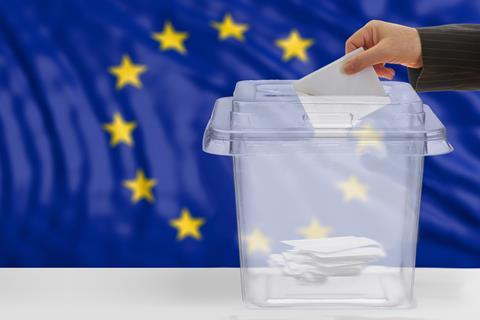New proposals aimed at reducing packaging waste do not appear to offer the fresh produce a fair and sensible path to sustainability

The Packaging and Packaging Waste Proposal, the European Commission’s plan for a radical shakeup of the rules around packaging, has the potential to create a huge problem for the fresh produce business.
What’s more, it appears to be grossly unfair for certain packaging providers, and in the end it may also prove to be illegal.
This attempt to curb what many regard as excessive packaging of our consumer goods is one strand of Europe’s ambitious Green Deal, a noble EU project which aims to do several different things to make the continent a more environmentally sustainable place.
One of its flagship projects is designed to ensure that all packaging in the EU market is reusable or recyclable by 2030. It endeavours to do this in an economically sustainable way, something everyone in the fresh produce business can get behind.
Indeed, the primary aim of PPWR should be to cut packaging waste in the EU and to encourage the use of alternative materials that can be recycled and reused. Fresh produce packaging companies say they share that objective, and in recent years many of them have invested heavily in environmentally friendly solutions.
But recent changes to the proposal have raised the very real possibility that a lot of the plastic packaging used for fruit and vegetables will soon no longer be permitted anywhere in the EU, regardless of whether or not it can be recycled.
Not surprisingly, this has caused consternation among Europe’s plastic packaging providers, who argue that to remove their products entirely will increase food waste and move Europe further away from the circular, net-zero economic model it desires.
They argue that such a move would require lots of products to be transferred to single-use packaging made from other materials, which they say are potentially even less sustainable.
Trial by trilogue
Like any such proposal, PPWR must complete a long and complicated legislative journey before it becomes EU law. After the EC proposes new regulations, the European Parliament votes on its own amended proposal version, before individual member state governments make their own changes through the European Council and adopt a ‘general approach’ to the rules. At this point, all three institutions engage in a so-called trilogue, where they compare their different versions line by line to reach a compromise. Once that is done, a final vote is held in the EU Parliament.
The EC’s original PPWR proposal was tabled in November 2022 and included a wider ban on fruit and vegetable packaging for any product under 1.5kg. A year later, however, the Parliament voted not to outlaw any fruit and veg packaging. Then, in December 2023, the Council reinstated the original ban proposal for plastic packaging only, leaving other materials like paper and cardboard unaffected.
The trilogue is now underway, but with a final plenary parliament session scheduled for early April, any compromise must be reached by the end of March. And with European elections fast approaching in June, there is concern among many in the plastic packaging business that some MEPs will use a stringent PPWR to score political points ahead of their potential reelection.
If their worst fears come true, then the produce industry’s plastic packaging suppliers may find themselves with a very short shelf-life indeed.



